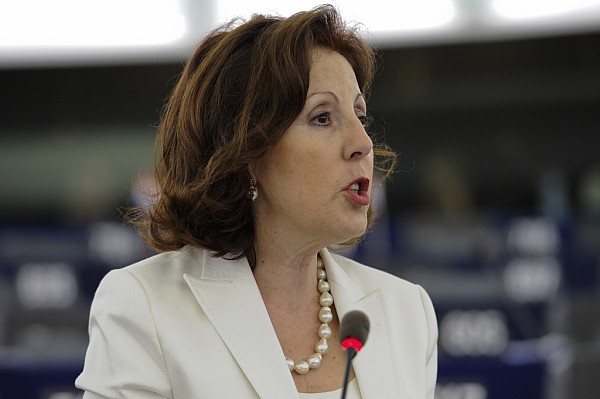Press "Horizon2020 will be an engine for growth and employment"
Maria da Graça Carvalho says that the Framework Programme Horizon 2020, presented today by the European Commission, contains a set of priorities that have been "correctly formulated and which reflect the direction of the work that I have been pursuing at the European Parliament". In particular, the Commission has announced increased funding for research and innovation - which has increased from €52 billion to €80 billion - alongside a simpler and more balanced distribution between the three fundamental pillars. These are a science orientated pillar, a second pillar that covers societal challenges and a third pillar dealing with industry related questions."
The MEP adds that "the rules of participation are broadly in line with my report on the simplification of the rules of participation in the Science and Innovation programmes. This includes such crucial questions for researchers as whether VAT is payable by institutions that cannot recover or reimburse 100% of direct costs." The programme also includes new rules for universities that will enable them to recruit young researchers more easily, the abolition of time sheets for those who do not work exclusively on European projects, a single set of rules for all the instruments in the programme, greater interconnection with the Structural Funds and the inclusion of the "stairway to excellence" initiative.
Maria da Graça Carvalho - who has been involved in shaping the future Framework Programme for Science and Innovation as a member of the ITRE Committee and the Committee on Budgets - also stresses the importance of the substantial increase for the European Institute of Innovation and Technology (EIT ). The Institute will receive €2.8 billion of funding under this programme alongside a 77% increase in funding for the European Research Council "whose work has proved such a success."
The MEP also welcomed another step forward associated with Horizon2020. The second pllar - coverning major societal challenges - gives priority to health, followed by safe, clean and efficient energy and integrated, environmentally friendly, smart transport. The programme also provides funding for marine, maritime and bio-economy research, "an area of great interest to Portugal."
Maria da Graça Carvalho believes that "research and innovation are engines for economic growth and therefore more funding in these areas may well represent a means to resolve the crisis that Europe is currently experiencing." The MEP - who was responsible for the simplification of science and innovation programmess adopted in Parliament in November 2010 - goes on to note that "we must now analyse the details of the document, especially as regards the rules of participation."
The Commission proposal will now be discussed in the Council and the European Parliament with a view to its adoption before the end of 2013.
Further Information:
- The Framework Programme Horizon 2020 will be complemented by a number of further measures to enable the full realisation of the European Research Area - a genuine single market for knowledge, research and innovation - by 2014 (IP/11/1025, MEMO/11/597)
- Programme for Business Competitiveness and Small and Medium-sized Enterprises: : IP/11/1476 and MEMO/11/852
- European Institute of Innovation and Technology (EIT): IP/11/1479 and MEMO/11/851
- Horizon 2020: http://ec.europa.eu/research/horizon2020/index_en.cfm?pg=home
- Innovation Union: http://ec.europa.eu/innovation-union
- Europe 2020 Strategy; http://ec.europa.eu/europe2020/index_pt.htm
- Digital Agenda: http://ec.europa.eu/information_society/digital-agenda/index_en.htm
- CIP Programme: http://ec.europa.eu/cip/index_en.htm
- EIT Website: http://eit.europa.eu
